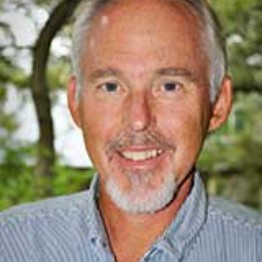My professional path has been complicated.
As a young man, I followed a call to serve God and the Church and ended up both ordained as an episcopal priest and licensed as a marriage and family therapist. Throughout, I witnessed God’s presence in all things including acts of worship as well as therapeutic counseling.
Things began to get complicated when I ran a Family Life Chaplains’ training program and clinic at Fort Hood, Texas. Working with couples, supervising graduate students, and teaching marriage and family therapy to chaplains consumed my waking hours. I did share worship responsibilities for a small Army chapel, but I confess that only took a few hours per week. The rest of the time I was fully engaged in the work of marriage and family therapy, education, and supervision.
I must tell you that I loved the seven years I got to direct that program for the Army and another three years that I was able to provide on-going support and training for Army Family Life Chaplains in Europe. That decade would have been bliss except for the nagging concern that interrupted my happiness.
Nagging Unhappiness
The concern I had was whether or not I was truly following God. When I looked at a couple and could only see them through my theoretical lens I began to worry: “What had happened to my theological lens?”
I do not believe this tension is only for the few clergy who are also licensed counselors. I suspect that this is the concern for all people of faith who desire to help the suffering with resources that are spiritual as well as psychological.
My search for how to integrate psychology and theology started with looking at the needs counselees presented and seeing how psychology would help and then how theology might. Quickly I realized that ethical violations could easily become an issue because of the power difference between counselor and counselee. Counselees typically came to the clinic in crisis. They were willing to consider any of the counselor’s interventions. I worried that they would agree to anything we might offer because of their vulnerability. The words from our ethical codes that we “above all do no harm” guided me to wonder how we could integrate theology into psychology without doing harm to clients.
Integrating Theology and Psychology
Eventually I found a working solution in the writings of Debra Van Deusen Hunsinger. She offered an analogy that integrating theology and psychology is like speaking two languages.
The key to knowing which language to use is first to find the language of the counselee.
If the clients speak in theology as their primary language for meaning and guidance, the bilingual counselor knows how to talk to them from that perspective. The same is true for clients who prefer to speak in psychological language, metaphors, and categories.
This was the first step for my journey but certainly not the last.
Whatever a spiritually integrated counselor does in practice needs to begin with ethics. In future blogs I will offer more of what I learned in this attempt to integrate the two disciplines of psychology and theology.



